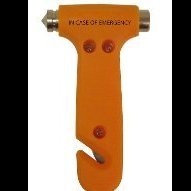Junta wants reforms done quickly
-
Recently Browsing 0 members
- No registered users viewing this page.
-
Topics
-
-
Popular Contributors
-
-
Latest posts...
-
15
BigC extra on klang
All those supermarkets do the same thing, after a long time of you knowing how to find everything again, they throw the whole thing over again. It seems they hate their customers. And if the intention is to make me buy more because I see items I had not noticed before, they are wrong, I would rather go to another shop. -
277
What do locals think of foreigners living in rural parts of Thailand on very modest budgets?
You pose such silly questions on a form that are for foreigners ex-pats how on God‘s green earth would any of us know what a village Thai person thinks of a foreigner living there then when you get your answers you act like you’re also so mighty and knowing about everything you ask some of the most stupidest questions I’ve ever read on this form truly unbelievable you need to get a life dude and your replies are almost as uninteresting as your questions get out in public more Life is good TIT -
3
UK 7/7: The Day That Shattered London’s Innocence
Guy Fawkes did have a go in 1605. Admittedly a long time ago, but remembered every year on November 5th. -
26
Another big scam
I always have a few beers before flying, the beers make me hungry. -
1
UK York Council Sparks Controversy with Military Equipment Ban at Armed Forces Day
Maybe some residents don't want this parade to become a target, or some of those smart people who landed on a boat down south have raised the "concerns" as a tactic to ensure the military hardware can't be used as a defence against attack? -
41
Community Pattaya Restaurant Owner Defends Sexy Attire as Marketing Strategy Amid Hygiene Backlash
What flavor would you suggest?😁
-
-
Popular in The Pub













Recommended Posts
Create an account or sign in to comment
You need to be a member in order to leave a comment
Create an account
Sign up for a new account in our community. It's easy!
Register a new accountSign in
Already have an account? Sign in here.
Sign In Now